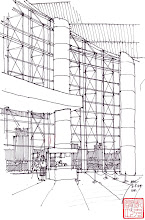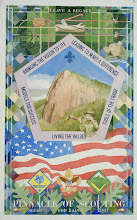It’s my experience that creative people, in particular, have trouble finishing a task. They look at the world around them with a critical eye – always looking for better ways to do things. As they work on a project for a period of time, they imagine new possibilities and can be tempted to jump to that new idea.
One of my architecture classmates at Kentucky was a classic example of this. He was a gifted designer and had amazing spatial talents. Over the course of a couple weeks, I watched him each night – build, then tear up his cardboard model; going from idea to idea. At several points along the way, he came up with something I considered really great. Instead of developing one concept, he would think of something new and start all over. Several of us tried (unsuccessfully) to push him to complete any one idea. When it came time for his public presentation, he had nothing to show but a mangled model. All those great ideas were lost.
I witness this sort of thing frequently at work and at scout activity-planning. Wood Badge has hopefully taught you several lessons to avoid this – and help you reach the finish-line with your ticket:
- Before you start, understand your personal values and have a vision of what success looks like.
- Plan out your mission including all tasks required and a time-line for each. Avoid the “activity trap” – starting the work before finishing the plan.
- Don’t work in a vacuum; accept the help of others and listen to their feedback. They will sometimes have insights that are not apparent to you.
- Have the discipline to stay on-task.
- If circumstances dictate a change, go back to your vision and create a revised plan.
- Finish the job – most projects have little value unless they are completed.
- After the project, honestly critique the process to understand what lessons were learned.
At the conclusion of the second weekend of SR966, celebrate the fact that you completed the 6-day training component of the course. This is a great accomplishment that we hope was a good experience as well. Now, the rest is up to you.
You are to go back home and work your ticket – armed with a plan, some inspiration, and new skills to make it happen. With discipline to follow the path that you laid out, you are certain to find your way to the finish-line.






